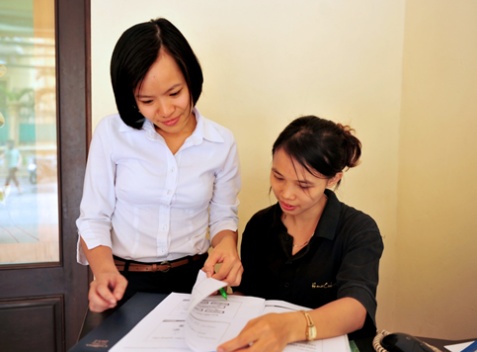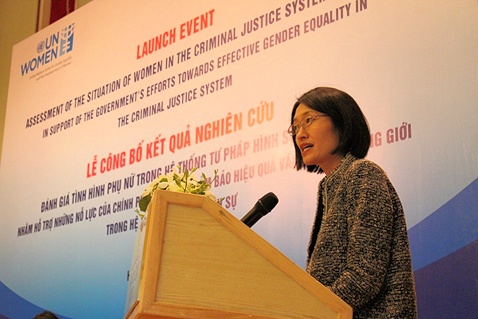Women still face difficulties accessing justice in Viet Nam
Date:
Findings of an “Assessment of the situation of women in the criminal justice system in Viet Nam - in support of the Government's efforts towards effective gender equality in the criminal justice system" were presented today in Hanoi by UN in Viet Nam.
Viet Nam has made tremendous strides in developing its legal system since committing to a rule-of-law state in 1991 and adopting a judicial reform policy in 2005. These reforms, along with the passage of the 2006 Law on Gender Equality (GE Law), firmly illustrate the Government’s commitment to building a just and democratic legal system which addresses the needs of all Vietnamese citizens. However, despite this legislative progress, women in Viet Nam still encounter many difficulties within the criminal justice system, whether they are survivors of crimes, perpetrators of crimes or employees in the criminal justice sector. The report launched today evaluates the current situation for women within the justice system and provides guidance on areas for improvement.

Women in Viet Nam still encounter many difficulties within the criminal justice system. Photo credit: Michael Fountoulakis
Preparations for the report began in November 2012 with the participation of both international and national research experts from the United Nations Office on Drugs and Crime (UNODC), the United Nations Entity for Gender Equality and the Empowerment of Women (UN Women) and the United Nations Population Fund (UNFPA). It was based on a desk review of available documentation and interviews with key stakeholders during a mission visit to Ha Noi, Viet Nam.
“The assessment helps to understand the realities that women face when dealing with the justice system; and identifies obstacles and challenges that affect their access to justice both as survivors and offenders and to know more about the situation of women as professionals in the justice system” said Zhuldyz Akisheva, UNODC Country Manager.
The report focuses on three general areas including women who have experienced violence; women in conflict with the law; and women working in the criminal justice system. Each chapter provides an overview of the current situation and the normative framework. It identified the need for improved implementation, monitoring and evaluation of existing laws and policies on violence against women, as well as further research and analysis to develop evidence-based, gender-sensitive policies and programmes.

Shoko Ishikawa, UN Women Country Representative. Photo credit: UN Women/Thao Hoang
“We have seen how women encounter structural inequalities at multiple levels due to socio-cultural norms that privilege men over women. This has the effect of limiting women’s access to justice, for example, when violence is perpetrated against them. It means that the specific needs of women who are in conflict with the law are often overlooked. And it also means that women working in criminal justice do not have access to the same opportunities as men and are therefore not equally represented at all levels of the sector”, said Shoko Ishikawa, UN Women Country Representative
Findings of the report will then make suggestions for practical interventions for the short term as well as recommendations for long term policy changes to improve the situation of women in the justice system.